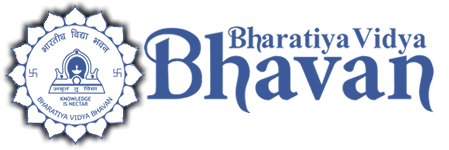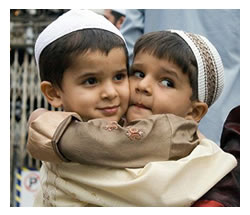
My Account | Online Catalogue | Contact Us
Munshi Saraswati Mandir Granthagar
(THE BHAVAN'S LIBRARY)
Category
- ONLINE QUIZ
- BOOK DISPLAYS
- June 2022: Series (Multi-Volume) Publications
- December 2020: Children's Classics
- October 2020: Indian Regional Classics (Part 3)
- September 2020: Indian Regional Classics (Part 2)
- August 2020: Indian Regional Classics (Part 1)
- June 2020: Sanskrit Classics
- April 2020: World Classics
- January 2020: New Additions 2019 – English
- January 2020: New Additions 2019 – Gujarati
- January 2020: New Additions 2019 – Hin, Mar, San
- January 2020: New Additions 2019
- December 2019: Gita Jayanti
- September 2019: Teachers' Day
- August 2019: Independence Day
- October 2018: Gandhiana
- September 2018: Gujarati Popular Literature
- August 2018: Parsiana (Zoroastrian) Collection
- July 2018: Makers of Modern India
- June 2018: World Classics in English
- May 2018: Reference Works
- April 2018: Jnanpith and Sahitya Academy Winners & Publications
- March 2018: Eminent Women of India
- February 2018: Ramakrishna Movement
- January 2018: Best of Indian English Literature
- December 2017: Making of the Constitution of India
- November 2017: Chacha, Children and Priyadarshini
- October 2017: Gandhian Collection
- FEATURED BOOKS
- ઘનશ્યામ દેસાઈ (૧૯૩૪ – ૨૦૧૦) / Ghanshyam Desai (1934-2010)
- ધીરુબહેન પટેલના પુસ્તકો
- Books by Amitav Ghosh
- Books by Amartya Sen
- डान् क्विक्षोटः Don Quixote
- Children’s Classics
- Regional Classics (Part 3) - Translations
- Regional Classics (Part 2) – Translations
- Regional Classics (Part 1) – Translations
- Sanskrit Classics – Editions and Translations
- World Classics – New Editions
- The Bhagavad Gita with Eleven Commentaries
- PERSONALITIES
- DATES & EVENTS
- ARTICLES
- FESTIVALS OF INDIA
- DRAWINGS & PAINTINGS
Library Blog
Contributions like articles, book reviews, book abstracts, etc. are welcome from Library Members, Bhavan’s staff, and friends and supporters of the Library.
Festivals of India: Ramzan-Id
by Smt. Anjali Ambekar

The holy month of Ramzan is the most important month in the Muslim calendar. It unites all Muslims in fasting, feasting, worship and prayer. It is a time for contemplation, spirituality and brotherhood. According to the Muslim calendar Ramzan is the ninth month. Muslims through out the world and in India observe fast throughout this month and eat and drink only in the night.
Significance of Ramazan
A very important aspect of Ramzan-Id is the charity, which all the Muslims are expected to extend to the needy. The first Eid of the year is known as 'Eid-al-fitr' meaning 'breaking the fast'. Fasting during Ramazan is said to develop self-control and a means of coming closer to Allah. It is said to purify one's soul. Objective of fasting is a way of experiencing hunger and developing compassion for the less fortunate, and learn to be thankful and appreciative for all of God's bounties. Fasting is also advantageous to the health and provides a break in the cycle of rigid habits. To a devout Muslim, Id is a time to forget all past grievances.
Observance of Fasts
Islamic Calendar is based on the Lunar calendar (based on the moon and not the sun) The practice of fasting during Ramazan is called "Sawm". To start fasting one has to sight the crescent of the new moon with ones' naked eyes. It is a period of worship and contemplation. Muslims usually go to the Masjid and spend hours studying the Quran and recite a special prayer called the Taraweeh (Night Prayer) in addition to the five daily prayers.
Throughout the world, Muslims observe the Ramazan month by fasting and through increased concentration for purification of soul to increase closeness with God. It is a period of worship and contemplation. On the 27th evening, Muslims celebrate the Laylat-al-Qadr (Night of Power) with the believe that on this day in 610 AD, the Holy Quran was revealed providing guidance, teaching, direction to all and also judging between wrong and right. Moreover this day is believed to have influenced the course of the year.
Breaking Fasts:
Fasts are traditionally broken with Souhoor before sunrise and iftar after sunset. Muslims observed for 29-30 days and fasts during daylight hours for an entire month. With the end of the customary fasting during Ramadan, Id-Ul-Fitr (Feast of Fast-Breaking) is celebrated for 3 days. Gifts are exchanged and large meals are prepared In some places fairs are also held.
Constraints
Telling of lies, slander, false oath, betrayal are considered most offensive during Ramadan and can destroy the goodness of fasting.
Holy Quran
Quran has been revealed for the guidance of mankind and invites the people of wisdom to read into its pages to enhance human knowledge about the universe and Creator, and to create environments where man could live in peace and harmony
with the fellow human beings and with the Nature. It puts a special emphasis on the concept of oneness of god and his concern about the spiritual and worldly welfare of man. The Holy Scripture also enlightens on the creation of the world, specially, of man; of good and evil spirits; man's responsibility for his actions; the Day of Judgement; the final account; and rewards and punishments.
Celebration
On this day, Muslims gather in large groups at mosques, and offer their prayers or namaz. Id is one of the most important festivals in the Muslim religion. On this day, Muslims from around the world dress up in new clothes to celebrate Id with great enthusiasm and joy. Id celebrates the breaking of the Ramzan fast, which is why the word Fitr, which means 'to break' is use. People greet each other with the words "Id Mubarak", and embrace three times. Women prepare delicious sweetmeats at home, and vermicelli kheer (sweetened milk) is a popular dish. Muslims also pay tribute to their ancestors during this time. It is the celebration of brotherhood and love among each other. The festival breaks the barrier between the poor and the rich as all celebrates the festival with equal excitement and joy.
Muslims are encouraged to dress in their best clothes (new if possible) and to attend a special Eid prayer that is performed in congregation at mosques or open areas like fields, squares etc. When Muslims finish their fast at the last day (29th or 30th Ramadan), they recite Takbir.
After the Eid prayer, Muslims usually scatter to visit various family and friends, give gifts (especially to children), and make phone calls to distant relatives to give well-wishes for the holiday. These activities traditionally continue for three days.
Id – Mubarak!